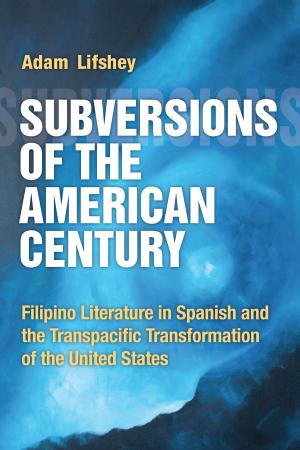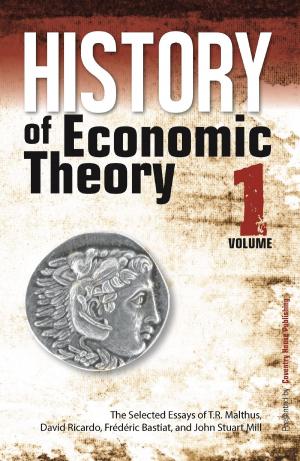International Relations Theory
Nonfiction, Social & Cultural Studies, Political Science, International, International Relations, Politics, History & Theory| Author: | Rosie Walters, Christian Scheinpflug, Stephen McGlinchey | ISBN: | 9781910814208 |
| Publisher: | E-International Relations | Publication: | November 1, 2017 |
| Imprint: | E-International Relations | Language: | English |
| Author: | Rosie Walters, Christian Scheinpflug, Stephen McGlinchey |
| ISBN: | 9781910814208 |
| Publisher: | E-International Relations |
| Publication: | November 1, 2017 |
| Imprint: | E-International Relations |
| Language: | English |
This book is designed as a foundational entry point to International Relations theory. As a beginner’s guide, it has been structured to condense the most important information into the smallest space and present that information in the most accessible manner.
The first half of the book covers the established theories that are most commonly taught in undergraduate programmes. The book then expands to present emerging approaches and offer wider perspectives. Each chapter sets out the basics of a theory whilst also applying it to a real-world event or issue. This format creates a lively, readable and relevant guide that will help students to see not only what theories are, but why they matter.
Unlike most other textbooks, there are no boxes, charts, pictures or exercises included. The philosophy underpinning this book is that these things can be a distraction. This book, like others in the E-IR Foundations series, is designed to capture attention with an engaging narrative.
Editors
Stephen McGlinchey, Rosie Walters and Christian Scheinpflug.
Contributors
Victor Adetula, Amitav Acharya, Sandrina Antunes, Lina Benabdallah, Isabel Camisão, Irena Leisbet Ceridwen Connon, Jeff Corntassel, Alix Dietzel, Hugh C. Dyer, Clara Eroukhmanoff, Marcos Farias Ferreira, Dana Gold, Richard Ned Lebow, Aishling Mc Morrow, Jeffrey W. Meiser, Carlos Murillo-Zamora, Sheila Nair, Maïa Pal, Alex Prichard, Felix Rösch, Archie W. Simpson, Sarah Smith, Yannis A. Stivachtis, Sarina Theys, Markus Thiel, Marc Woons and Pichamon Yeophantong.
This book is designed as a foundational entry point to International Relations theory. As a beginner’s guide, it has been structured to condense the most important information into the smallest space and present that information in the most accessible manner.
The first half of the book covers the established theories that are most commonly taught in undergraduate programmes. The book then expands to present emerging approaches and offer wider perspectives. Each chapter sets out the basics of a theory whilst also applying it to a real-world event or issue. This format creates a lively, readable and relevant guide that will help students to see not only what theories are, but why they matter.
Unlike most other textbooks, there are no boxes, charts, pictures or exercises included. The philosophy underpinning this book is that these things can be a distraction. This book, like others in the E-IR Foundations series, is designed to capture attention with an engaging narrative.
Editors
Stephen McGlinchey, Rosie Walters and Christian Scheinpflug.
Contributors
Victor Adetula, Amitav Acharya, Sandrina Antunes, Lina Benabdallah, Isabel Camisão, Irena Leisbet Ceridwen Connon, Jeff Corntassel, Alix Dietzel, Hugh C. Dyer, Clara Eroukhmanoff, Marcos Farias Ferreira, Dana Gold, Richard Ned Lebow, Aishling Mc Morrow, Jeffrey W. Meiser, Carlos Murillo-Zamora, Sheila Nair, Maïa Pal, Alex Prichard, Felix Rösch, Archie W. Simpson, Sarah Smith, Yannis A. Stivachtis, Sarina Theys, Markus Thiel, Marc Woons and Pichamon Yeophantong.















